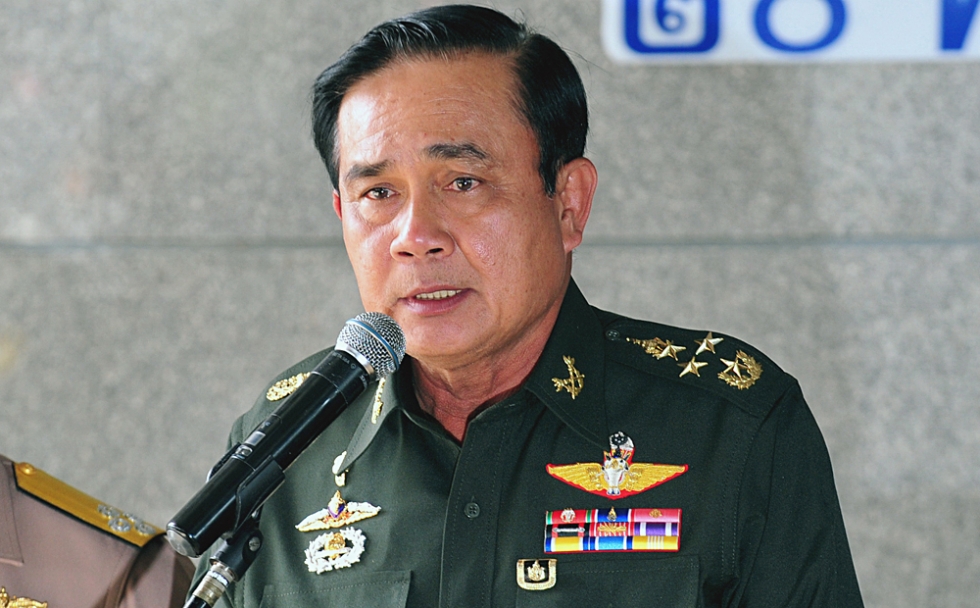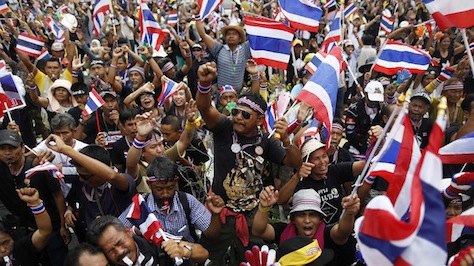
Anyone who cheered on the failed coup in Turkey need only turn to Thailand to understand just what it means to have a democracy ‘guaranteed’ by the military.![]()
On Sunday, August 7, voters across the country will take part in a referendum that will decide whether Thailand adopts a new constitution — one that would place significant political powers in the hands of the Thai military, in essence making permanent the role of the armed forces, which have governed the country since a May 2014 coup. For instance, the draft constitution includes a new provision that would allow the military junta’s executive council — the euphemistically named National Council for Peace and Order (คณะรักษาความสงบแห่งชาติ) — to appoint all 250 members of the Senate in a newly reconstituted bicameral national assembly. Among other things, that would give the Thai military veto power over any future prime minister, future elected governments, their policy agenda, the Thai bureaucracy and the country’s judiciary.
* * * * *
RELATED: Why you should believe the worst about Thailand’s coup
RELATED: How Yingluck’s rice subsidy backfired in Thailand
* * * * *
Under the new constitution, all 500 members of the lower house, the House of Representatives, are to be determined by a proportional representation voting system that makes it almost impossible for a single party or movement to win an absolute majority. Most observers believe that this is a direct ploy to disenfranchise a majority of Thai voters who have supported populists over the last two decades who have promised to redistribute wealth away from wealthy elites.
The referendum follows an atypical campaign, which is to say that there hasn’t exactly been a true campaign. Opponents of the new constitution face severe restrictions against speaking out for a ‘No’ vote, and some have received lengthy prison sentences for doing so. That’s standard course for the ruling junta, which has sentenced Thai citizens to prison for comments — even on Facebook or other social media — for speech deemed ‘offensive to the royal family.’
In a sense, the military government, headed for over two years now by a retired army officer, Prayuth Chan-Ocha, is in a ‘heads-I-win-tails-you-lose’ situation.
With no true ability to mobilize, opponents of the draft constitution are at a disadvantage. With no outside election monitors or real checks on ballot integrity, we might never know the true result if the official result is not tallied transparently. Even if the military government allows the ‘No’ camp a victory, Prayuth has made it clear that the government will simply submit a new constitution en route to fresh elections that are set to take place sometime in 2017. Notably, if voters reject the constitution on Sunday, it will be the second failed effort, after the military jettisoned a first draft last September.
In broad strokes, Thailand is no stranger to military coups or to newly promulgated constitutions. But from 2001 through 2014, a single family came to dominate Thai politics, ably capturing the hearts of a majority of Thai voters, especially among the rural poor and especially in the country’s relatively less developed north. Continue reading Thai voters set to vote on new military-backed constitution


